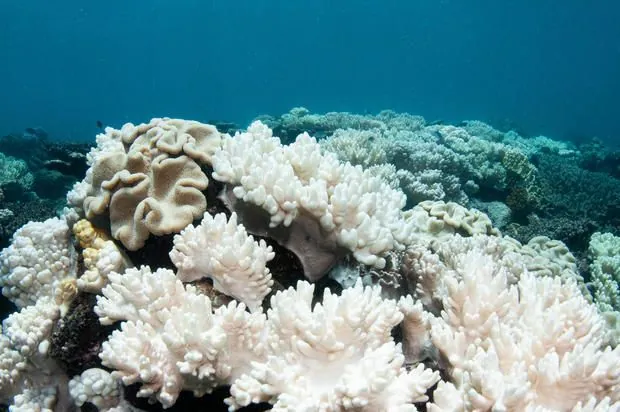“Parts of the Great Barrier Reef are dying at a record rate – researchersAustralian scientists recorded the highest coral mortality in 39 years of monitoring, up to 72% of dead corals on 12 reefs. At one northern site, about a third of the hard corals died due to rising water temperatures.”, — write on: unn.ua
Details
The Australian Institute of Marine Sciences reported that a survey of 12 reefs found up to 72% of coral deaths due to.
In one northern section of the reef, about a third of the hard corals have died, the “biggest annual decline” in 39 years of government monitoring.
Often referred to as the largest living structure in the world, the Great Barrier Reef is almost 2,000 kilometers of tropical coral containing an astonishing biodiversity. But lately the corals have been fading to a sickly shade of white.
Discoloration occurs when water temperatures rise, and corals expel microscopic algae known as zooxanthellae to survive.
If high temperatures persist, the coral may eventually turn white and die.
Great Barrier Reef: Scientists will be able to monitor young corals thanks to improved technologyJuly 26 2023, 12:49 • 425131 views
This year it has already been confirmed that this is already the fifth mass coral bleaching on the reef in the last eight years.
But the latest study also found that a fast-growing type of coral known as acropora is dying the most. This coral grows quickly, but it is also one of the first to discolor.
Lead researcher Mike Emsley told the ABC public broadcaster that last summer was “one of the most severe events” on the Great Barrier Reef, with heat stress exceeding all other indicators.
World Wildlife Fund’s head of oceans in Australia, Richard Leck, said the Great Barrier Reef could recover, but there were limits to its sustainability.
He can’t keep getting hit like that. We are fast approaching a tipping point
Leck added that the study area was “relatively small” and expressed concern that when the full report is published next year, “a similar mortality rate will be observed”.
He said the study’s findings support the need for Australia to commit to cutting emissions by at least 90% from 2005 levels by 2035 and moving away from fossil fuels.
We will remind
Scientists have long identified global warming as having a negative impact on coral reefs, and recent studies have shown that climate change will wreak havoc on the ocean, with consequences for nature and humanity.
Two-thirds of reef sharks and rays are threatened with extinction – studyJanuary 17 2023, 16:49 • 413339 views
